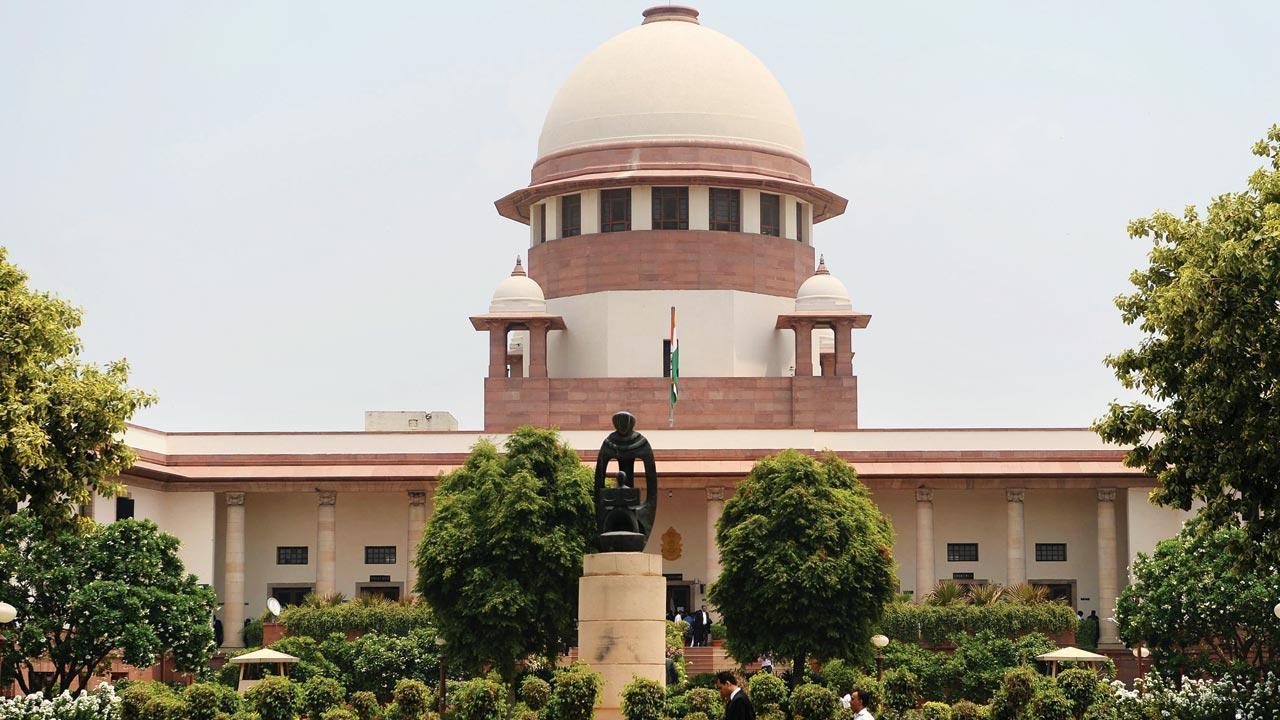A bench of Justices UU Lalit, S Ravindra Bhat, and Hrishikesh Roy upheld the Gujarat High Court's September 2018 judgment, which allowed the supply of natural gas as a clean and green fuel in the three areas of outer Ahmedabad region, by state-run gas distributor Gujarat Gas

Supreme Court. File Pic
In a setback to Adani Gas, the Supreme Court on September 28 dismissed its plea, challengings the bidding process for the supply of PNG and CNG in three areas of Ahmedabad district.
ADVERTISEMENT
A bench of Justices UU Lalit, S Ravindra Bhat, and Hrishikesh Roy upheld the Gujarat High Court's September 2018 judgment, which allowed the supply of natural gas as a clean and green fuel in the three areas of outer Ahmedabad region, by state-run gas distributor Gujarat Gas.
Adani had challenged the validity of Regulation 18 of the Petroleum and Natural Gas Regulatory Board (PNGRB) (authorising entities to lay, build, operate, or expand city or local natural gas distribution networks) Regulations, 2008 as violative of Articles 14 and 19(1)(g) of the Constitution, and ultra vires Section 16 of the Petroleum and Natural Gas Regulatory Board Act, 2006.
Adani Gas, in the bidding process which was carried out by the PNGRB in 2016, lost to state-run Gujarat Gas Ltd to supply PNG and CNG in Sanand, Bavla, and Dholka areas of the district.
In its 79-page judgment, the top court said, "It is held that Regulation 18 is neither arbitrary, nor ultra vires. The objective underlying Regulation 18, is compatible with the overall objectives of the PNGRB Act. Regulation 18 is not contraindicated by any specific provision of the Act. Further, as a sectoral regulator, the PNGRB is entrusted with the power to frame appropriate regulations to ensure the objectives of the Act, and thus the challenge to Regulation 18 cannot succeed."
The bench said that the PNGRB is entrusted with the power to frame appropriate regulations and also bring about fairness in the marketplace. It held that Adani's claim is precluded by the principle of approbate-reprobate, as the company accepted authorisation granted by the PNGRB (including exclusion of disputed areas), furnished the performance bond, and even participated in the auction for the excluded areas. "Only thereafter challenged authorisation when its bid was unsuccessful. It is held, that exclusion of the disputed areas was justified in the overall facts and circumstances," the bench noted.
Gujarat Gas submitted that Adani was always aware of its rights, and availed the opportunity to participate in the bidding for the disputed (excluded) areas, and therefore, cannot be allowed to question the decision of the PNGRB to grant a license to it, for some areas.
Gujarat Gas had complained against Adani to the regulator, accusing it of unauthorised expansion of its gas distribution network in the three areas of the district.
The top court noted that role of the state government in granting NOC is only supportive or collaborative, in terms of the Centre's 2006 policy, and cannot confer any advantage to any entity, which has to seek and be granted specific authorisation in terms of the PNGRB Act on the merits of its application. The top court dismissed Adani's appeal and also imposed a cost of Rs 10 lakh which would be payable to the Centre.
This story has been sourced from a third party syndicated feed, agencies. Mid-day accepts no responsibility or liability for its dependability, trustworthiness, reliability and data of the text. Mid-day management/mid-day.com reserves the sole right to alter, delete or remove (without notice) the content in its absolute discretion for any reason whatsoever.
 Subscribe today by clicking the link and stay updated with the latest news!" Click here!
Subscribe today by clicking the link and stay updated with the latest news!" Click here!







